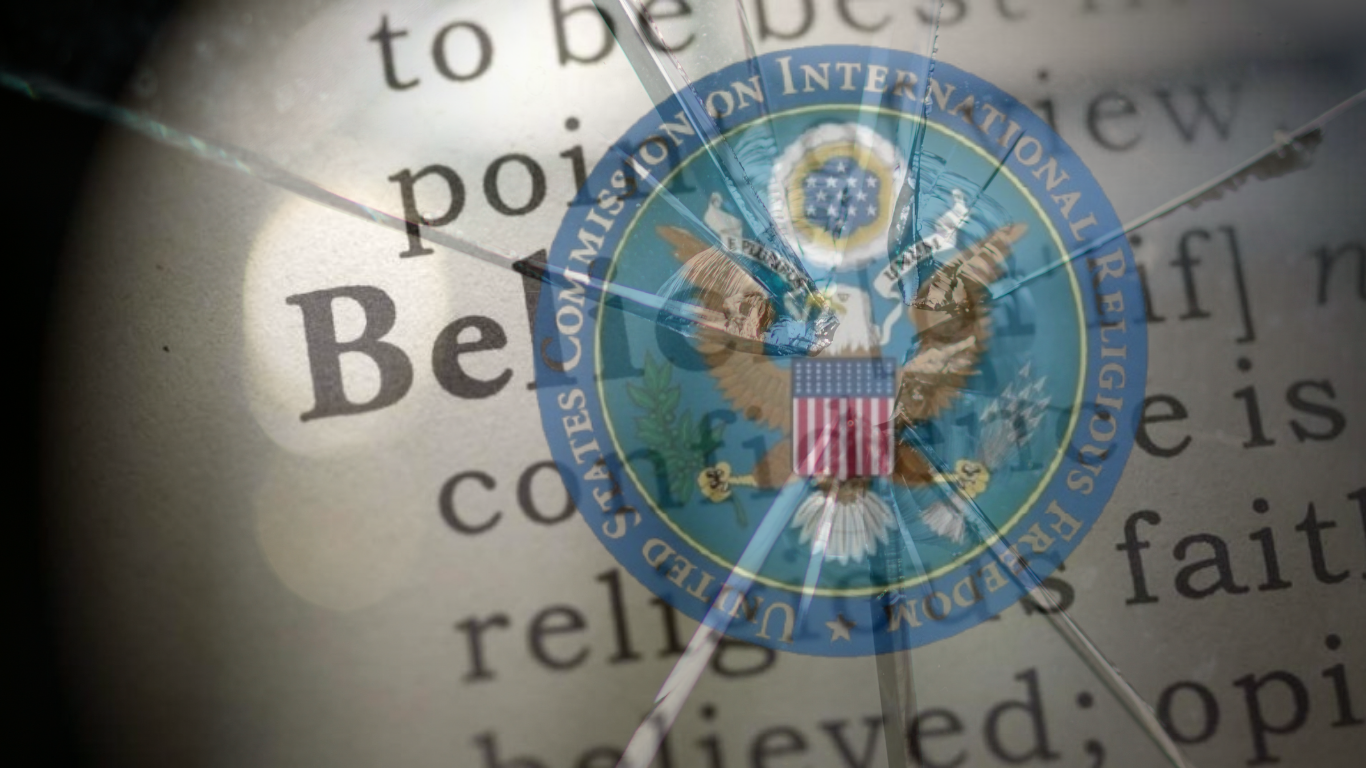Weaponising religious freedom: how USCIRF’s narrative distorts reality

The recent hearing of the US Commission on International Religious Freedom (USCIRF) left many scratching their heads in confusion. Listening to the hearing, one might assume that either they have taken leave of their senses or are deliberately undermining the hard-won success the world has gained over 30 years in fighting radicalism and terrorism.
Given that USCIRF is a state-funded organisation, the whole issue descends into absurdity. How can an organisation funded by a state which survived many terror attacks, including September 11, which claimed hundreds of lives, throw another country under the bus since it takes proper measures against radicals and terrorists?
Given that USCIRF is a state-funded organisation, the whole matter borders on absurdity. How can an organisation backed by a country that has survived multiple terror attacks, including the September 11 attacks, that claimed hundreds of lives, throw another nation – Azerbaijan – under the bus for taking proper measures against radicals and terrorists?
Moreover, the measures taken by Azerbaijan are nowhere near as severe as those implemented by the United States. Let us not forget that America invaded Afghanistan in response to the September 11 attacks; imprisoned and tortured hundreds of individuals accused of terrorism in Abu Ghraib and Guantanamo Bay; conducted a covert operation in Pakistan to kill the leader of the al-Qaeda terrorist organization; and then refused to return his body to his family, instead throwing it in the ocean.
In comparison, Azerbaijan merely incarcerated members of a radical group that attacked a local media outlet and threatened a female journalist who had criticized a man for demanding women wear the chador. Among those detained were the group’s leader, who had threatened to drown Azerbaijan in blood in Ganja; individuals who attempted to establish a Sharia-ruled ghetto on the outskirts of Baku; and others who openly expressed their desire to overthrow secularism and create an Iranian-style theocratic regime.
So, the allegations made by USCIRF—that Azerbaijan persecutes Shia segments—are baseless. All religions are freely practised in Azerbaijan, a country long known for its religious tolerance. This tolerance is not a recent development but a tradition that traces back hundreds of years. One undeniable example is the Atashgah, a Zoroastrian temple built in 1713 in Surakhani, 30 kilometres from the centre of Baku. Imagine, the rulers and people of Azerbaijan permitted Zoroastrians from India to construct their temple in the heart of a Muslim country 300 years ago—an act that do not exist even today in many countries around the world.
Figuratively speaking, the embrace of pro-Iranian radicals by a U.S. state-funded organisation brought many to tears. These are people who call America the "Great Satan" and openly vow to destroy it. Do they truly care about such individuals? Of course not.
They use these individuals as tools to mask their true intentions, defending Armenian lobbies’ unfounded allegations. In other words, this U.S. organisation sacrifices its own country’s credibility for the sake of a handful of Armenians living across America.
For over 30 years, Armenian lobbies planted stories about Garabagh. But no one bought them — not a single country in the world recognised Garabagh as anything but part of Azerbaijan. After Azerbaijan restored its territorial integrity a few years ago, the narrative shifted. Now, the talk is of “ethnic cleansing” and so-called Armenian heritage in Garabagh. Needless to say, the second part of the USCIRF hearing echoed the same rhetoric.
This entire campaign reflects a desperate attempt by Armenian lobbying groups and their allies to reframe a lost cause. With the military option no longer on the table and international law reaffirming Azerbaijan’s sovereignty, their new strategy hinges on manipulating Western institutions like USCIRF into echoing their narrative. But weaponising religious freedom to promote political agendas erodes the very credibility of those institutions. If USCIRF truly cared about religious rights, it would highlight the systematic destruction of Azerbaijani mosques during Armenian occupation, where pigs were kept in sacred spaces, and not ignore the rehabilitation of Christian and Jewish heritage sites underway in post-liberation Garabagh. Azerbaijan’s model of secular governance, religious pluralism, and its consistent protection of all communities stand in stark contrast to the caricature painted by these hearings. In the end, what USCIRF has done is not just a disservice to Azerbaijan but a disservice to its own mission. It has turned a vital cause—international religious freedom—into a tool of geopolitical misinformation. If the United States wants to be seen as a fair and principled actor, it must demand better from institutions acting in its name. Truth, after all, should not be sacrificed on the altar of diaspora politics.
Here we are to serve you with news right now. It does not cost much, but worth your attention.
Choose to support open, independent, quality journalism and subscribe on a monthly basis.
By subscribing to our online newspaper, you can have full digital access to all news, analysis, and much more.
You can also follow AzerNEWS on Twitter @AzerNewsAz or Facebook @AzerNewsNewspaper
Thank you!

